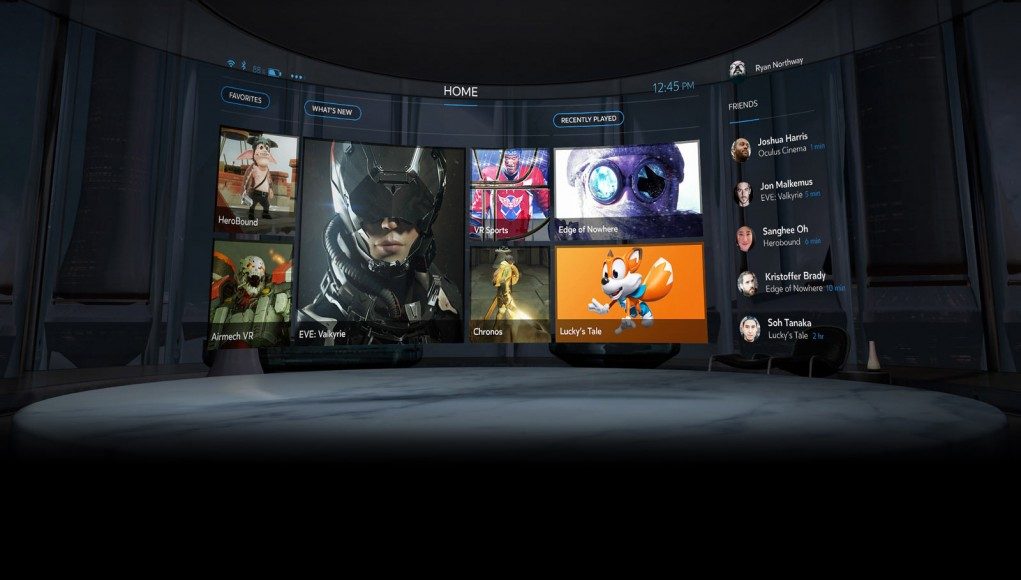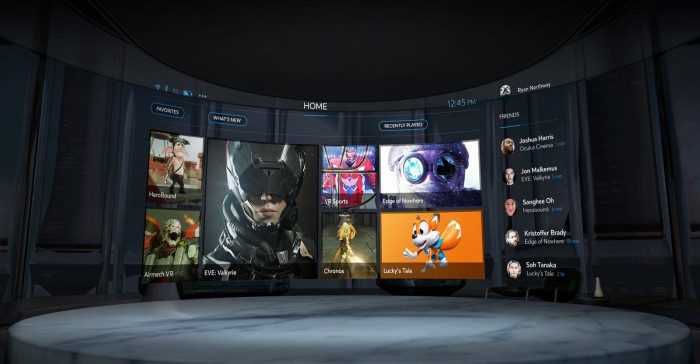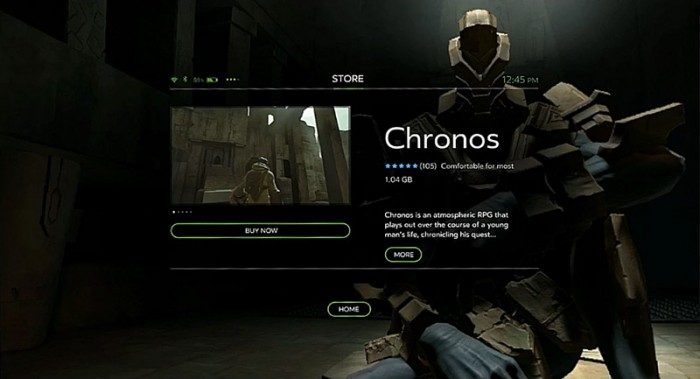Oculus showed off their solution for virtual reality enabled software delivery platform today when they gave us a glimpse of the latest version of Oculus Home.
Oculus’ press event in San Francisco today may have been short, but it was packed with new information and some surprises in both business partnerships and input.
As Oculus rapidly approached the point where people will be able to go out and buy their VR headset, they’re focusing more and more on how those new customers will interact with and obtain content to use with in virtual reality.
Nate Mitchell, VP of Product at Oculus, took to the stage in San Francisco to update us on the company’s dedicated virtual reality software portal, Oculus Home. The portal shares a lineage with the identically named launcher on Samsung’s Gear VR, but the company has revealed significant updates including social features not yet seen on the mobile version.
First and foremost, much like GearVR’s own ‘home’ interface, Oculus Home for the Rift is completely VR enabled. You can browse games and applications in VR and, importantly, preview those games within VR too. Whilst this may seem like a gimmick to some who’ve yet to spend time with their own VR Headset, not having to remove your headset every time you want to load up a new game or even buy and download a new one, is actually a big deal.
Whilst new details on Oculus’ ecosystem and interface are slim at present, there’s a few nuggets of speculation to be had from the images we have.
Firstly, is the aforementioned social sidebar, perhaps aping similar systems found on console like the Xbox One or PS4. Offering a unified way to connect and play with friends paramount in today’s gaming market. If the system is standalone, requiring people to create new accounts and amass new friends list, it may prove a tough sell with those already embedded in other ecosystems. Microsoft Windows 10 however does promise cross-platform social features connected to their Xbox platform – so given MS’s presence at today’s press conference, that may be a way forward for Oculus too.
Next, we’re wondering what to make of the cluster of icons in the top left of the image. WiFi, Bluetooth and battery life icons maybe commonplace inside mobile UI’s, but it’s interesting to see them represented inside a desktop PC offering. Could the battery life icon indicate the charge of your wireless controllers? Handy for keeping an eye on how long you may have left to play with your Oculus Touch controllers perhaps. This heads-up view almost gives the Oculus Home application the look and feel of an operating system in and of itself.
Quick access to favourites and newly launched applications also seem to channel much that is good about next generation console interfaces – now evolved over two generations. The whole thing is also strongly reminiscent of the GearVR experience, and this makes complete sense. Oculus knows that once VR hardware becomes just another facet of technology, it’ll be all about the content. Ensuring that consumers can enjoy a consistent look and feel across both mobile and desktop virtual reality will be vital for them.
And of course, comparisons have to be drawn against the big player in the PC gaming space, Valve’s Steam platform. Their Steam VR interface, an extension of Steam’s ‘Big Picture’ mode, is aiming at a similarly immersive user experience. The question is: how will Oculus compete with such an established and familiar force? Will games on Oculus Home offer full or timed exclusivity to drive more users to the space or will Oculus curtail their support for Steam in an effort to differentiate Oculus Home as the place for Rift users? None of this is yet clear but as we hurtle towards 2016 with Valve’s ‘Vive’ and Lighthouse systems positioned as direct competitors to the Oculus’ Rift, it’s likely to be a battle for VR supremacy.
We’ll be at E3 to get our hands on the latest software and games when E3 kicks off next week. Oculus repeatedly promised that many of the headline titles from today’s press conference will be available at the show. We may even get a peek at Oculus Home for the Rift too.









